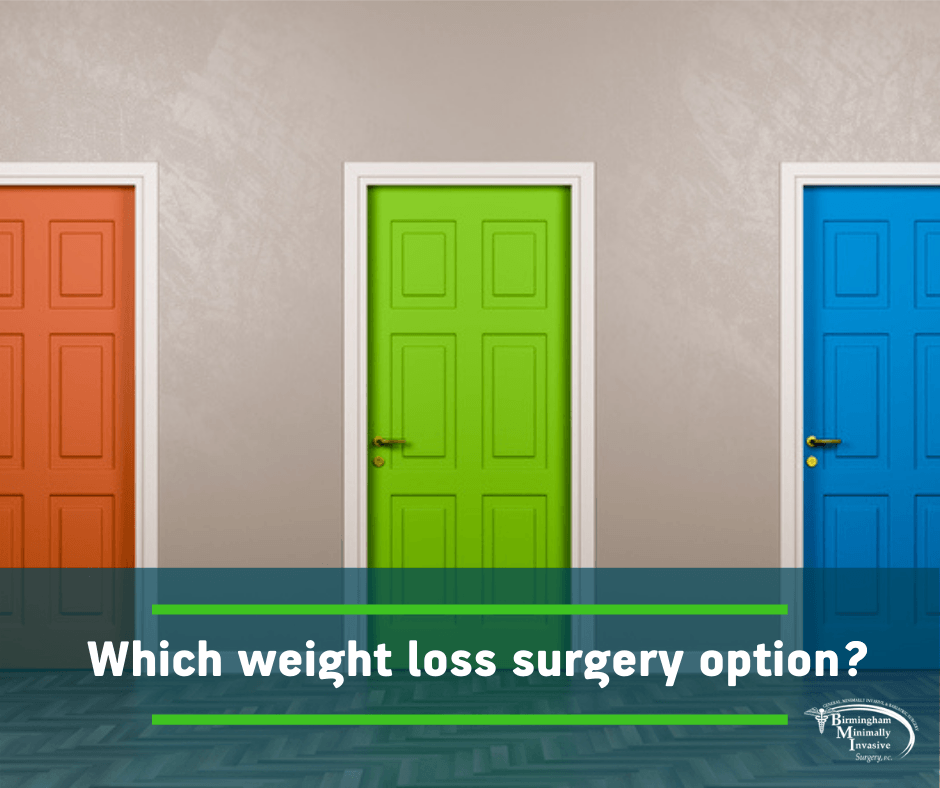

As our nation and world continue to battle COVID-19, one thing has become clear. Those with certain underlying medical conditions, as defined by the Centers for Disease Control, are at higher risk for severe illness.
According to the Obesity Society, this includes seniors, people with pre-existing respiratory and cardiac disease, and those with compromised immune systems. People who are obese have a greater chance of being in each of these categories and should therefore be considered at increased risk for severe disease as well. (Find a large list of resources about this topic on their website.)
So what does all of this mean? It is more important than ever to fight obesity and help as many people as possible get healthier. Even as we continue to go through this pandemic, it’s not too late to start making changes for those who are obese. For those who are at risk of becoming obese, it’s crucial to stop that from happening.
At Birmingham Minimally Invasive Surgery, we want to do everything we can to help you get healthy and stay healthy. This may be the right time to finally commit to having weight loss surgery and jump start your journey toward better health.
More about obesity
For years, obesity has been a growing health problem affecting millions of people across the U.S. Poor eating habits, high levels of stress, environmental factors, and some genetic factors contribute to weight gain for many people. Without proper intervention and treatment, weight gain can escalate to dangerous levels, leading to a heightened risk of diseases, health problems, significant physical disability, or even death.
We typically divide obesity into these categories, using Body Mass Index (BMI):
- Class 1: BMI of 30 to < 35
- Class 2: BMI of 35 to < 40
- Class 3: BMI of 40 or higher and more than 100 pounds over what is considered an ideal body weight
Obesity is a complex and progressive disease that increases your risk of developing comorbidities and weight-related health problems, as well as interfering with your ability to perform many daily physical functions.
Health risks & conditions associated with obesity
We consider obesity to be a chronic disease, and if left untreated, it can lead to the development of one or more serious health problems. Common conditions associated with obesity include:
- Type 2 diabetes
- High blood pressure
- Heart disease
- Osteoarthritis
- Sleep apnea and other breathing disorders
- Reproductive problems
- Stroke
- Fatty liver disease
What you may notice is that many of the conditions listed above are also underlying medical conditions that make people more likely to suffer severe outcomes with COVID-19. Obesity can also negatively affect your immune system, a critical component to fighting the virus. The ties between obesity and the novel coronavirus are unmistakable.
How to start fighting obesity today
If you are obese, what can you do right now — TODAY — to start getting healthier and increasing your immune function?
- Decrease your calories — Cut out simple carbohydrates such as sweets, candy, baked goods, sugar-sweetened beverages, jams, jelly, etc.
- Decrease excess “bad” (saturated or trans) fats — These are commonly found in commercial baked goods, processed or fried foods, cheese, whole, and 2% milk, ice cream, cream, fatty meats, butter, and margarine.
- Increase fruits and vegetables — Aim for two cups of whole fruit per day and at least three cups of vegetables per day.
- Increase low-fat dairy and protein — Drink or eat three cups of low-fat (1% or skim) dairy per day. Eat two to three ounces of lean meat or beans with two meals per day.
- Increase water — Drink at least 60 to 80 ounces of water per day.
- Increase exercise — It can be challenging for those who are obese, but more physical activity of any kind will be helpful.
Your next step: weight loss surgery
While we want you to start getting healthier right now to reduce your risk of suffering from COVID-19 and other diseases and conditions, you may need more help to lose weight. Obesity is a progressive disease because the excess weight gain causes a number of hormonal and metabolic changes in the body that increase the risk for even greater fat accumulation over time, making it difficult to fight using diet and exercise alone.
At Birmingham Minimally Invasive Surgery, we have several tried and true methods of weight loss surgery, including gastric sleeve surgery, gastric bypass surgery, and the LAP-BAND. We work to educate our patients about their weight loss options, as well as life after surgery.
To learn more about these options and begin the journey to improving your health, schedule a consultation with us today.
Want to start fighting against obesity?
Birmingham Minimally Invasive Surgery is a caring group of professionals who specialize in all types of bariatric surgery, including gastric sleeve surgery. We have the resources to help you prepare for surgery, undergo successful surgery, and recover after, including personalized plans for diet and exercise that will help you learn healthy habits that you can pass on to your family. Give us a call to set up a consultation at 205-833-6907.










